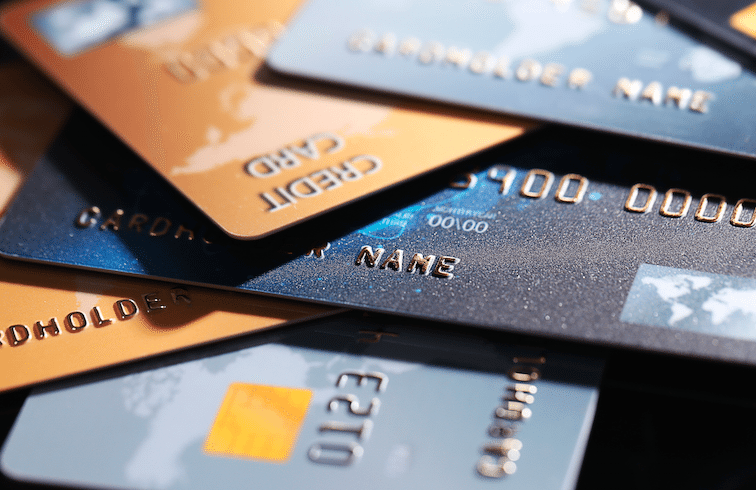Business owners face credit dings or downright bad credit for various reasons. And when a less-than-stellar history follows you, the idea of restoring solid credit can seem daunting at first—but the steps to rebuilding credit are straightforward and might take less time to make a meaningful difference than you think. Meanwhile, you can still access the financing you need to fund and grow your small business. There are numerous business credit cards out there, and they don’t all require perfect credit scores to secure.
Below, we’ll walk through what to look for if you have bad credit and which terms to watch for:
Assess the cost of business credit cards
When you go to select and apply for a credit card, you’ll want to assess how much borrowing that money will cost you. Look at the annual fee, the annual percentage rate (APR) and other factors. Some credit cards offer introductory APR or balance transfer rates, for example, making them a more attractive option if you’re in a financial pinch.
Prepaid credit cards
A prepaid credit card may be the most affordable and accessible option to a business owner with a cruddy score. Prepaid cards can be a great tool for managing costs, since purchases can only be made based on the funds you have already made available.
While this option won’t help you re-establish credit, or get you credit beyond what you put down as a deposit, it is perhaps the most effective way of putting a tight cap on spending.
Prepaid credit cards are available with major brands like MasterCard and Visa, making them user-friendly for many purposes and in numerous locations. When you apply, watch for hidden fees such as monthly minimums, non-network cash withdrawal fees and other service fees. As always, it pays to read the terms and fine print.
Also on StartupNation.com: How Much Does Accepting Credit Cards Cost?
Secured credit cards
A secured credit card is one that you can get by providing a security deposit for the amount of the credit limit. The major difference between these and a prepaid card is that secured credit cards give you access to a credit line beyond your down payment. In addition, your payment activity on a secured credit card is reported to the major credit bureaus, which enables you to build (or rebuild, as the case may be) your credit history.
For example, you may go to put down $250 to secure the credit card. You may find that a restrictively low amount to have as a credit limit, but on the flip side, it will help you be very selective about your spending. Secured cards are available at a wide variety of amount limits.
Consider the Capital One Secured MasterCard, which currently has an offer for a $0 annual fee. The card reports to the three major credit bureaus regularly. It offers a $200 line of credit with a security deposit based on your current credit, and allows to you access a higher credit limit when you make your first five monthly payments on time.
When you go to select a secured credit card, like any credit card, read the fine print. Watch for annual fees, withdrawal fees, your interest rate and your annual percentage rate.
Unsecured credit cards
Unsecured credit cards, or those that don’t require a deposit in order to access a credit line, are perhaps the most popular option for business owners. Many retailers offer rewards cards that promote benefits such as cash back, travel benefits and retail discounts. The more and better credit history you have, the more you may qualify for lower fees and interest rates, as well as special bonuses that some cards offer.
When you are just starting out or making a comeback from bad credit, the Credit One Bank Unsecured Visa Credit Card has easy application requirements and no out-of-pocket expenses to open an account. The card offers a flexible bill due date to help set up a system of on-time payments as it reports to all three major credit bureaus regularly to help you build your credit.
With this card, you automatically earn 1 percent cash back on gas or groceries, some of which may apply for business use. Like all cards, though, it’s important to consider the terms. This one offers an annual fee of $0 to $99, and a variable interest rate of 15.65 percent to 24.15 percent, an important factor when considering how the accumulation of interest may affect your ratio and payments.
The ultimate credit rebuilding plan
The key to rebuilding credit isn’t just securing a credit card, but also how you manage it once you have it. Credit bureaus monitor your credit ratio as well as the timing of your payments. So, it’s important to be on time, which is easy to do with electronic calendar reminders and bank payments.
Keeping a low balance relative to the credit limit on the card will also help you achieve a more positive report on your credit history.
The good news about the path to rebuilding credit is that there are several straightforward steps you can take to boost your score. It may feel restrictive at first, but being a little frugal by sticking to only the basics is a good financial discipline to practice. Once you take these steps and make your payments like clockwork, you can see your credit score start to rebound in as little as a few months.






